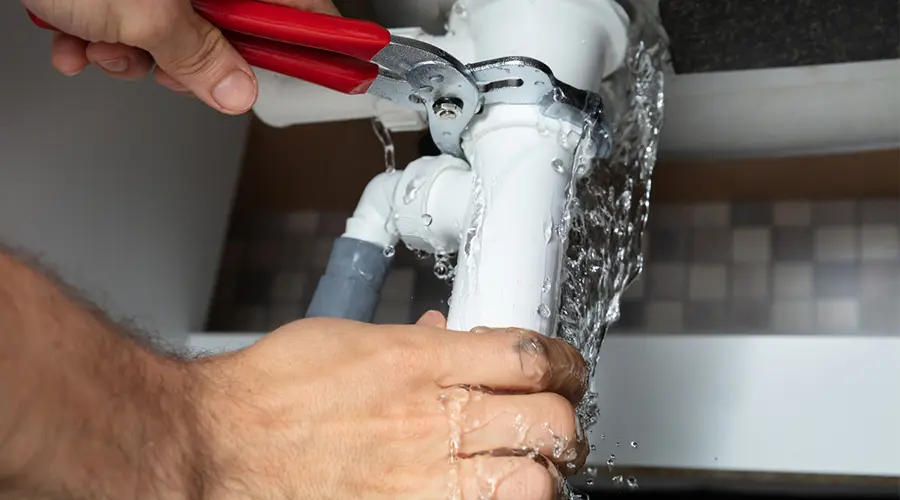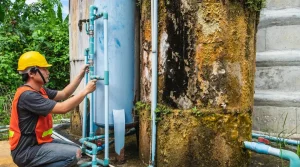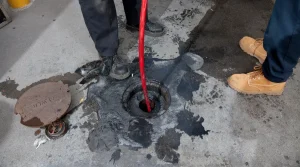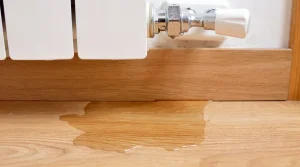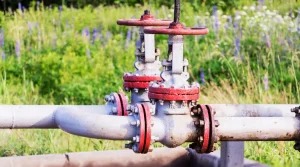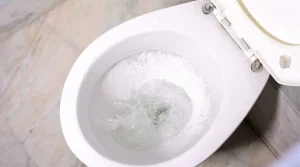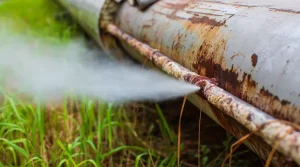Key Takeaways:
- Stay calm and assess the severity of the plumbing issue.
- Shut off the main water supply immediately to minimize damage.
- Turn off electricity if water is near outlets or appliances.
- Contain the water using towels and buckets.
- Call a professional plumber for major issues.
- Document the damage for insurance claims.
- Prompt repairs prevent costly damages and health hazards.
Handling Plumbing Emergencies: A Complete Guide
Plumbing emergencies can occur without warning, transforming an ordinary day into a stressful ordeal. Whether it’s a burst pipe or an overflowing toilet, knowing how to react swiftly can save you from expensive repairs and extensive water damage. This guide covers essential steps to take during a plumbing emergency, explains why immediate repairs are crucial, and provides solutions for ten of the most common plumbing emergencies.
What to Do During a Plumbing Emergency
1. Stay Calm and Assess the Situation
Panic can lead to hasty decisions that worsen the situation. Take a deep breath and determine the extent of the problem. Identifying whether it’s a minor leak or a major plumbing disaster will help you decide your next steps.
2. Shut Off the Water Supply
Locate the main water shut-off valve and turn it off to prevent further flooding. If the issue is isolated to a particular fixture, shut off the valve closest to that fixture.
3. Turn Off Electricity (If Necessary)
If water is near electrical outlets or appliances, shut off power to avoid electrical hazards. Safety should be your priority.
4. Contain the Water
Use towels, buckets, or any available containers to control water spread. Preventing water damage early reduces repair costs significantly.
5. Call a Professional Plumber
While some issues may have temporary fixes, a professional plumber can assess and resolve problems effectively. Delaying professional assistance can lead to further complications.
6. Document the Damage
Take photos or videos of the damage for insurance claims. Proper documentation can support reimbursement for repairs and replacements.
Why Immediate Plumbing Repairs are Essential
Ignoring plumbing issues can lead to severe consequences. Here’s why prompt action is necessary:
1. Prevent Water Damage
Leaks and burst pipes can compromise the structural integrity of your home, damaging walls, flooring, and foundations.
2. Avoid Mold Growth
Persistent moisture fosters mold and mildew growth, leading to health risks and expensive remediation efforts.
3. Save on Costs
Addressing minor plumbing issues early prevents them from escalating into costly repairs or replacements.
4. Ensure Health and Safety
Plumbing problems can create unsanitary conditions. Immediate attention prevents exposure to contaminated water and other hazards.
The 10 Most Common Plumbing Emergencies and Quick Remedies
1. Burst Pipes
Quick Remedy: Shut off the main water supply. Use pipe clamps or duct tape for a temporary fix until a plumber arrives.
2. Leaking Faucets
Quick Remedy: Turn off the water supply to the faucet. Replace worn-out washers or O-rings as a short-term fix.
3. Clogged Drains
Quick Remedy: Use a plunger to remove the clog. Try a mixture of vinegar and baking soda or a plumber’s snake for stubborn blockages.
4. Running Toilet
Quick Remedy: Inspect the flapper valve and flush handle. Adjust or replace components if necessary.
5. Water Heater Failure
Quick Remedy: Check the power source or gas connection. If no immediate fix is available, turn off the heater to prevent further issues.
6. Sump Pump Failure
Quick Remedy: Ensure the pump is plugged in and debris-free. If non-functional, use a backup pump until repairs are made.
7. Frozen Pipes
Quick Remedy: Use a hairdryer or space heater to thaw the pipes. Keep the area insulated to prevent future freezing.
8. Overflowing Toilet
Quick Remedy: Turn off the toilet’s water supply. Use a plunger or plumber’s snake to remove blockages.
9. Backed-Up Sewer Line
Quick Remedy: Avoid using water in affected areas. Contact a professional immediately, as sewer backups pose significant health risks.
10. Dishwasher Leak
Quick Remedy: Turn off the dishwasher and inspect hoses and seals. Tighten or replace damaged components as needed.
Frequently Asked Questions (FAQ)
1. How can I find my main water shut-off valve?
The main water shut-off valve is usually located near the water meter, basement, or outside wall where the water line enters the home.
2. What should I do if my water heater starts leaking?
Turn off the power or gas supply and shut off the water supply to the heater. Contact a plumber immediately for an assessment.
3. Can I use chemical drain cleaners for clogs?
While chemical cleaners can dissolve minor clogs, frequent use can corrode pipes. A plunger or plumber’s snake is a safer alternative.
4. How do I prevent pipes from freezing in winter?
Insulate exposed pipes, keep the home’s temperature above 55°F, and allow faucets to drip slightly during extreme cold.
5. What should I do if my toilet overflows frequently?
Frequent overflows may indicate a deeper clog in the system. Consider having a professional inspect your plumbing to prevent further issues.
6. Is a slow drain a sign of a bigger problem?
Yes, slow drains can signal partial blockages or sewer line issues. Addressing them early can prevent complete backups.
7. Why does my faucet keep dripping?
A worn-out washer, O-ring, or faulty valve seat often causes a dripping faucet. Replacing these components usually stops the leak.
8. How do I handle a leaking garbage disposal?
Turn off the disposal, check for loose connections, and tighten or replace seals if necessary.
9. What are the dangers of a backed-up sewer line?
Sewer backups contain harmful bacteria and can cause extensive damage. Immediate professional intervention is necessary.
10. Should I attempt DIY repairs for plumbing emergencies?
Basic fixes like plunging or tightening a valve are fine, but for significant issues, professional assistance is recommended to avoid further damage.
Conclusion
Knowing how to handle plumbing emergencies can prevent extensive damage, reduce repair costs, and maintain a safe home environment. By acting quickly, shutting off water, and contacting a professional when needed, you can efficiently manage plumbing disasters. Familiarizing yourself with common issues and their solutions ensures you’re prepared for any emergency. If a plumbing issue arises, don’t hesitate to call a licensed plumber for expert assistance.
For professional plumbing services, visit Plumber North Bergen.

